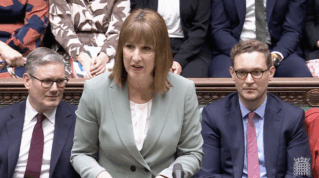The far right violence of the last few days has impacted our young people and the communities we are part of in multiple ways, and although the riots may die down soon, the explicit racism and Islamophobia will continue. When term starts, the problem won’t be gone.
Working in a small youth charity in Greater Manchester, the last few days have been heavy. The team has checked in on our young people, checked in on each other, dispelled misinformation, coached people through tough conversations and tried as hard as we can to make our delivery safe.
At RECLAIM we work with working-class young people. Not hard to reach, not deprived, not young people on a social mobility journey. Our programmes are designed to build solidarity, power and community, centering the understanding that a working-class identity is intersectional, it is valued and it’s something to be proud of.
We run programmes that explore gender justice, belonging and the impact of austerity in communities. We partner with brilliant organisations like Muslim Northern Women to work with young people exploring the intersections of Islamophobia and class, and we provide intergenerational mentorship so working-class young people can build their support networks.
Like FE providers, our provision is embedded in our communities. We know racism and Islamophobia are deeply rooted in every aspect of our society, and that it trickles down from the top. We also know that we need a long-term community approach if we’re going to challenge the rise of far-right violence on our streets. There are no quick fixes.
There are many parallels between community youth programmes and FE provision, most notably who we exist to serve. If we want to root out the far right, we must build strength in our communities, and we must learn from each other about what works.
To that end, here are some prompts that I hope will kickstart dialogue about the work we need to start doing now of building on the long legacy of anti-racism and anti-Islamophobia organising in our localities.
Precise language and targeted support
Our young people are able to easily name what they’re seeing and experiencing as racism and Islamophobia. They’re going to need you to name it too and not brush it off as ‘mindless thuggery’.
Students and staff will be carrying the scars of the past few days. Ensure you’ve got the right provision in place, such as culturally sensitive therapy and trauma-informed counsellors as part of your wellbeing and safeguarding offer.
There will need to be space for hard conversations that are held in safe and non-punitive ways. If you’re anxious about how to hold those conversations, get paid support from youth and community organisations in your local area who do this every day.
You might be doing great work with government-funded youth social action programmes, but be realistic about the remit of this work and whether you need extra capacity from youth organisations doing detached or specialist youth work.
Safe spaces and self-defence
Government will likely announce quick fixes to curb the current far-right violence. More punitive policing, more curtailing of civil liberties, more Prevent measures. These approaches only serve to kick the can down the road. They will also disproportionately affect working-class Black youth. How can our spaces offer collective safety and accountability rather than surveillance?
I’ve written before about community self-defence. Over the past 14 years, we’ve seen youth centres and places where young people come together decimated; don’t underestimate your role in filling this vacuum left by austerity.
From learner voice to learner leadership
Finally, the problem with youth voice is that it often sees ‘voice’ and participation as the outcome rather than part of a process.
If your learner voice strategy extends as far as mirroring our flawed political system but doesn’t provide students with critical thinking skills, autonomy, space to organise and the messy, bold joy that comes from youth campaigning, you’re not enabling the community builders and social leaders of the future.
And we really need those people.

















Your thoughts